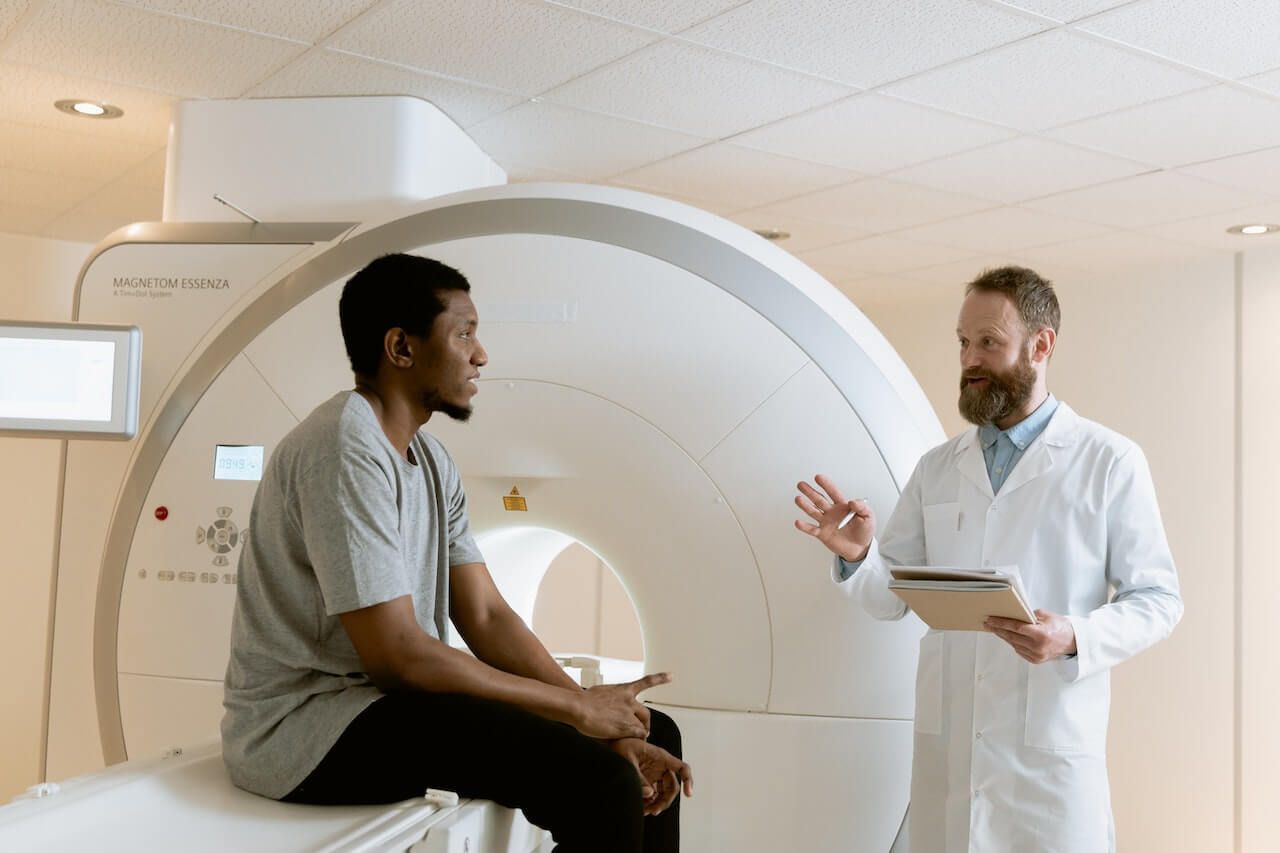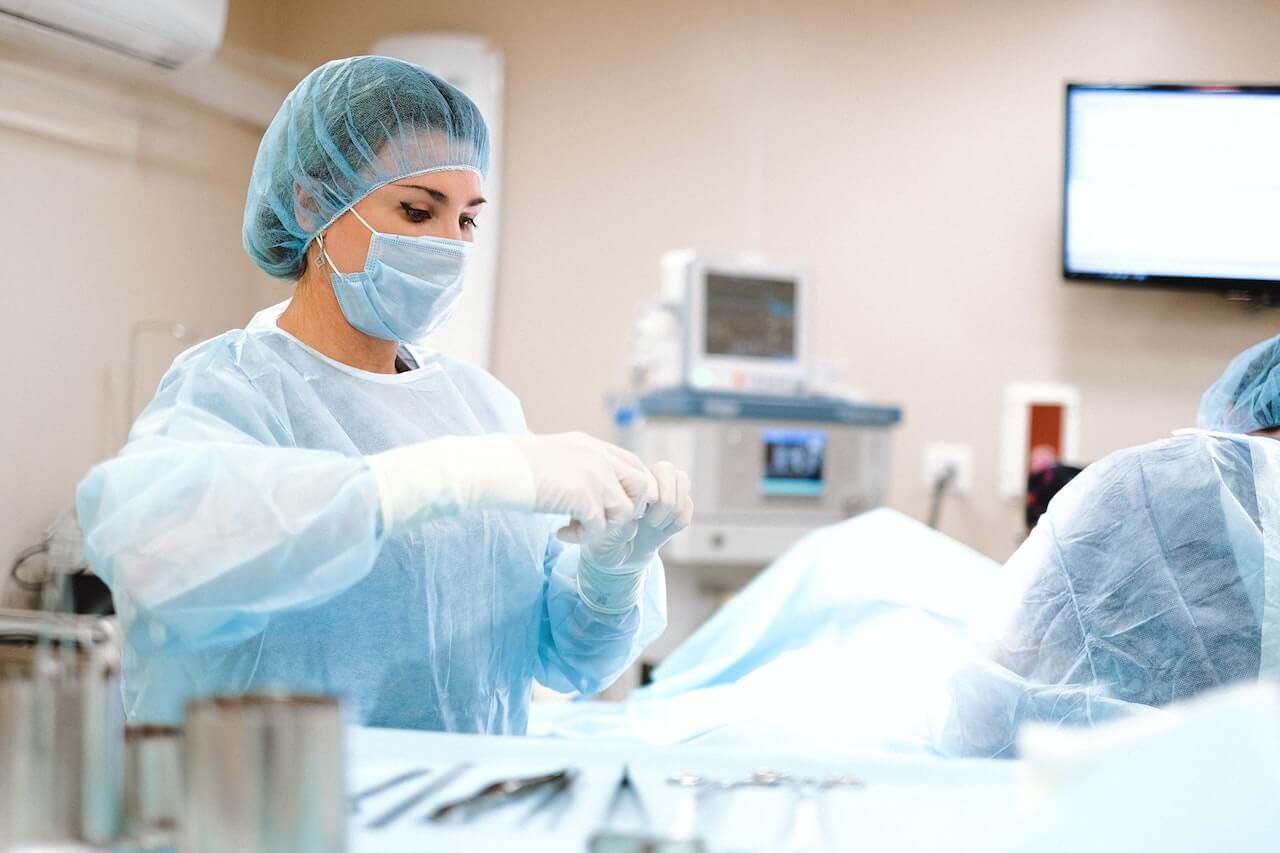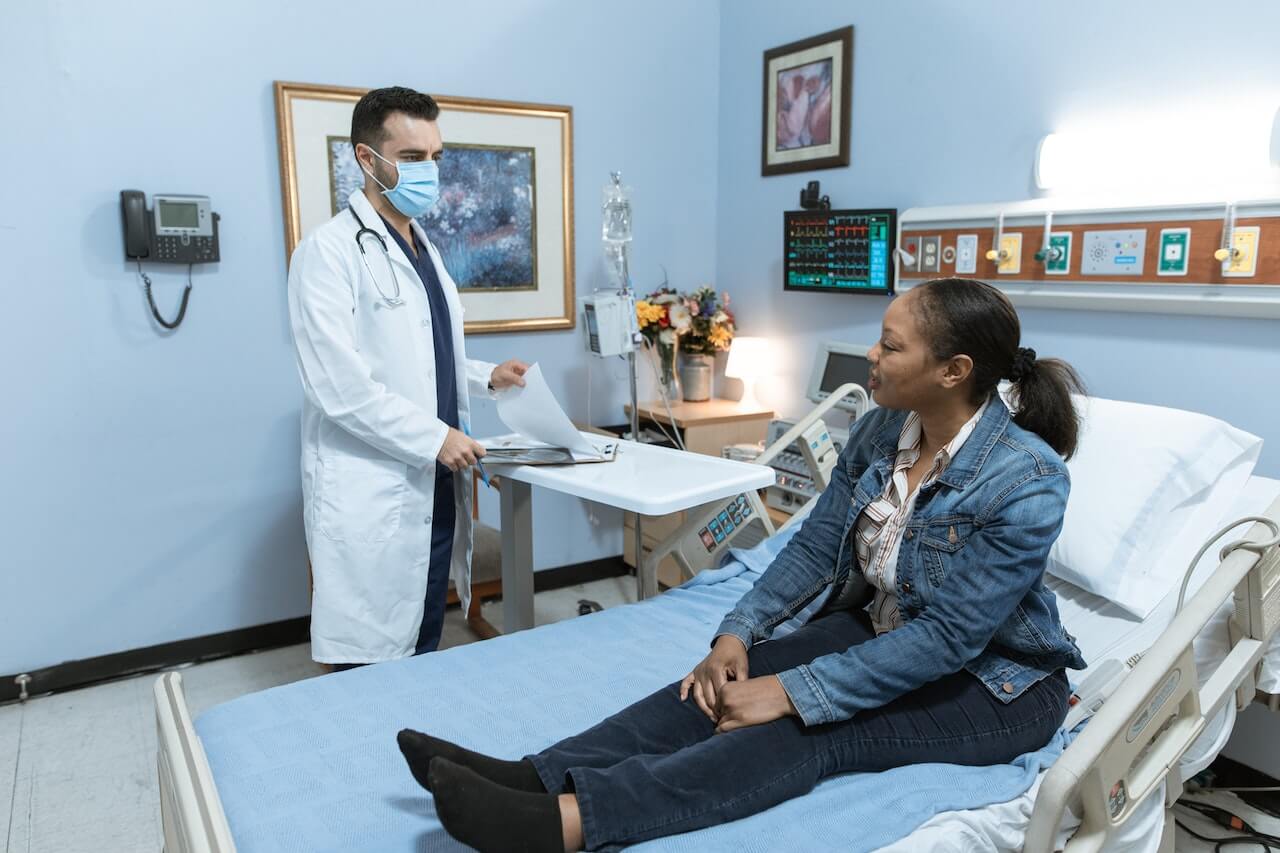Best Medical Schools in Georgia

If you're looking to pursue a medical career in Georgia, you're in the right place. The state of Georgia boasts a selection of renowned medical schools that provide quality education and training to medical students. Pursuing a medical education in Georgia is a rigorous and rewarding process that prepares students for successful careers in medicine.
Get Matched to Thousands of Scholarships
Create your Bold.org profile to access thousands of exclusive scholarships, available only on Bold.org.
Create Free ProfileWhether you're interested in practicing medicine, conducting research, or teaching, a medical degree from a Georgia medical school can open up several career opportunities and set you on the path toward achievement. In this Bold article, we'll explore the best medical schools in Georgia, their admission requirements, curriculum, financial aid options, and job prospects for graduates.
Your future in medicine awaits. Discover more insights about medical schools from our Scholarship Blog!
Overview of Medical Education in Georgia
Medical education in Georgia is rigorous, spanning several years of classroom and clinical training. Obtaining a medical degree in Georgia requires dedication, perseverance, and hard work. The state's healthcare ecosystem encompasses teaching hospitals, research facilities, private practices, and government institutions.
A notable feature of medical education in Georgia is its hands-on clinical experience. Students actively participate in early clinical rotations, acquiring practical skills and real-world medical expertise. This approach fosters a comprehensive understanding of patient care and prepares students for the challenges they'll encounter in their medical careers.
Additionally, medical education in Georgia strongly emphasizes research and innovation. Many medical schools in the state have robust research programs that cover diverse medical areas, from basic science to clinical trials. Through these programs, students collaborate with seasoned researchers, contributing to the advancement of medical treatments and technologies.

Importance of Medical Education
Medical education is crucial for ensuring healthcare services' quality, safety, and effectiveness. It equips students with in-depth knowledge of human anatomy, physiology, pathology, and essential skills for patient care and communication.
Moreover, medical education is a dynamic field that necessitates ongoing learning and adaptation to emerging technologies and medical advancements. Healthcare professionals who stay current with the latest research and technologies are better prepared to deliver top-notch care to their patients.
Medical School Accreditation in Georgia
In Georgia, medical schools typically seek accreditation from the Liaison Committee on Medical Education (LCME), the accrediting body for medical education programs in the United States and Canada. The LCME evaluates medical schools based on their adherence to specific standards and guidelines to ensure quality education and training.
It's important to note that accreditation statuses can change over time, so verifying the current accreditation status of any medical school you're interested in is advisable. You can visit the LCME website for the most up-to-date information on accredited medical schools in Georgia. Additionally, most schools have their accreditation listed on their websites.
Not everyone may want to pursue premed to become a doctor or go to med school. Apply for nursing scholarships today to ease the financial burden of paying tuition by yourself.

Top Medical Schools in Georgia
These Georgia medical schools have established strong research and clinical programs, allowing students to engage in groundbreaking discoveries and gain valuable hands-on experience. If you're considering a career in medicine, here are the top medical schools in Georgia to consider:
Emory University School of Medicine
Emory University School of Medicine in Atlanta, Georgia, is renowned for its excellence in medical education. With strong research and clinical programs, Emory offers MD, PhD, and Master of Medical Science programs. The faculty consists of respected experts who provide valuable guidance to students. State-of-the-art facilities and resources enhance the learning experience. Emory's clinical programs, including partnerships with prestigious hospitals, provide students with exceptional patient care opportunities, including Emory University Hospital, Emory University Hospital Midtown, and Grady Memorial Hospital.
Medical College of Georgia at Augusta University
The Medical College of Georgia at Augusta University is a renowned public medical school in Augusta, Georgia. The school is the state's flagship medical school and is renowned for its research and rural health programs, offering MD, PhD, residency, and fellowship programs. Students gain valuable hands-on experience and clinical training, with a strong emphasis on community outreach. The school's research program provides opportunities for students to collaborate on cutting-edge projects with esteemed faculty.
Mercer University School of Medicine
Mercer University School of Medicine, a private institution in Macon, Georgia, prioritizes community-based medical education. With multiple clinical campuses across the state, it offers diverse MD and PhD programs. Mercer students gain valuable clinical experience and hands-on training through their curriculum. The school's commitment to community service provides opportunities to serve underserved populations. Mercer also boasts a strong research program, enabling students to collaborate with faculty on innovative projects.
Morehouse School of Medicine
Morehouse School of Medicine, a private institution in Atlanta, Georgia, prioritizes minority and underserved communities. With MD, PhD, Master of Public Health, and Master of Science in Biomedical Technology programs, the school addresses health disparities through education, research, and service. Morehouse's curriculum emphasizes social justice and community service, providing opportunities to work with underserved populations. The school's robust research program focuses on projects promoting health equity and addressing health disparities.
Philadelphia College of Osteopathic Medicine - Georgia Campus
The Philadelphia College of Osteopathic Medicine - Georgia Campus is a private, non-profit medical school located in Suwanee, Georgia. It offers DO and PhD programs with a focus on osteopathic medicine, highlighting the body's natural healing abilities. The curriculum prioritizes holistic, patient-centered care and provides extensive hands-on training and clinical experience. Students engage in diverse healthcare settings and can collaborate with faculty on impactful research projects.
Medicine can also be a difficult field for women to break into. Apply for scholarships for women today if you're trying to save up!

Admission Requirements and Process
The admission requirements and process for medical schools in Georgia can be complex and may vary depending on the school and the program. However, there are some general requirements that most schools will require, including prerequisite courses, standardized tests, and a competitive application process.
Prerequisites for Medical School
To gain admission to medical school, you typically need a bachelor's degree from an accredited college or university, with a strong emphasis on pre-medical coursework in biology, chemistry, physics, and mathematics. Most medical schools in Georgia require applicants to complete a set of prerequisite courses before applying to medical school. However, the specific courses and requirements may vary depending on the school. Some schools may also require additional courses, such as biochemistry or genetics.
It is important for applicants to carefully review the prerequisite requirements for each school they are interested in applying to and ensure that they have completed all necessary coursework before submitting their application.
MCAT Exam
The Medical College Admission Test (MCAT) is a standardized test that assesses applicants' scientific knowledge, critical thinking, and problem-solving abilities. Most medical schools in Georgia require applicants to take the MCAT before applying.
Preparing for the MCAT can be a significant undertaking, and applicants should plan to study for several months in advance of the exam. Various study resources are available, including online courses, practice exams, and study guides.
Application Process and Deadlines
The application process and deadlines for medical schools in Georgia can vary depending on the school and the program. Most schools require applicants to submit an online application through the American Medical College Application Service (AMCAS) or the Georgia College of Osteopathic Medicine Application Service (GCOMAS).
Along with the application, applicants will typically need to submit transcripts from all colleges and universities attended, MCAT scores, letters of recommendation, and a personal statement. Some schools may also require additional materials, such as a secondary application or an interview.
It is important for applicants to carefully review the application requirements and deadlines for each school they are interested in applying to and ensure that they submit all materials on time.
Tips for a Competitive Application
Medical school admissions can be highly competitive, and applicants should strive to submit a strong application that highlights their academic accomplishments, research experience, and extracurricular activities.
#1 Gain research experience to demonstrate commitment and contribution.
#2 Engage in leadership and community service to showcase your impact and teamwork.
#3 Thoroughly prepare for the MCAT using available resources.
#4 Obtain strong letters of recommendation from insightful sources.
#5 Craft a compelling personal statement reflecting motivations and unique qualities.
#6 Apply early for potential interview and acceptance advantages.
Remember these tips are general guidelines, and it's essential to tailor your application to the specific requirements and preferences of each medical school you apply to. Conduct thorough research on each institution to understand their mission, values, and desired qualities in applicants.

Medical School Curriculum and Specializations
Medical schools in Georgia offer a wide range of programs and specializations to meet the needs and interests of aspiring medical professionals. The curriculum and specializations for medical schools in Georgia can vary depending on the school and the program. However, most medical schools in Georgia follow a similar format:
Pre-Clinical Years
The pre-clinical years of medical school are an essential component of medical education. During this time, students focus on classroom-based learning and cover topics such as anatomy, physiology, pharmacology, and pathology. In addition to these core subjects, students also learn communication and patient care skills, which are critical for success in the medical profession. The pre-clinical years are also an opportunity for students to participate in simulations and clinical experiences, which provide a glimpse into the real-world medical environment.
Medical schools in Georgia offer a variety of resources to help students succeed during the pre-clinical years. Students can take advantage of study groups, tutoring services, and other support programs to enhance their learning experience.
Clinical Years
The clinical years of medical school are an exciting time for students as they transition from the classroom to hands-on training. Students work with patients and healthcare professionals in a real-world medical setting during the clinical years. This experience provides students with valuable exposure to a range of medical specialties and clinical environments.
Medical schools in Georgia offer a variety of clinical experiences to help students gain the skills and knowledge they need to succeed in the medical profession. Students can participate in rotations through different medical specialties, including surgery, pediatrics, and internal medicine. These rotations provide students with the opportunity to work alongside experienced physicians and gain practical experience in a variety of medical settings.
Medical Specialties and Residency Programs
After completing medical school, graduates can pursue a medical specialty through residency programs. Residency programs provide in-depth training in a specific medical field and prepare graduates for careers in medicine.
Medical schools in Georgia offer a wide range of residency programs, including programs in family medicine, surgery, obstetrics and gynecology, and psychiatry. These programs allow graduates to gain specialized knowledge and skills in their chosen field of medicine.

Financial Aid and Scholarships
Medical school can be expensive, but several financial aid options and scholarships are available to help students cover the costs. Pursuing a career in medicine can be a fulfilling and rewarding experience, but the cost of tuition and fees can be a significant barrier for many students. Fortunately, several financial aid options and scholarship programs are available to medical students in Georgia to help them achieve their academic and professional goals.
Discover Georgia scholarships today!
Tuition and Fees
The cost of tuition and fees for medical schools in Georgia can vary depending on the school and the program. However, most medical schools in Georgia charge tuition and fees that range from $30,000 to $60,000 per year. This cost can be a significant financial burden for many students, especially those from low-income families or the first in their families to attend college.
Despite the high cost of tuition and fees, pursuing a career in medicine can be a wise investment in the long run. According to the Bureau of Labor Statistics, the median annual wage for physicians and surgeons in the United States was $208,000 in May 2020. This high earning potential can help medical students pay off their student loans and achieve financial stability in the future.
Scholarships and Grants
Various scholarship and grant programs support medical students in Georgia, such as the Georgia Medical Society Scholarship Program, the Augusta University Scholarships Program, and the Bold.org Scholarship Platform. These programs offer financial aid based on various factors like academic merit, financial need, and residency.
The Georgia Medical Society Scholarship recipients are required to practice medicine in Georgia for at least two years after residency. Augusta University provides scholarships like the Medical Scholars Program, Presidential Scholarship, and Foundation Scholarship, considering academic achievement, leadership potential, and financial need.
Bold.org offers numerous scholarship opportunities for students in Georgia. By utilizing Bold.org, students in Georgia can discover scholarships that align with their interests and goals. Each scholarship has its own set of requirements. To apply simply create a free Bold.org profile!
Loan Programs and Repayment Options
Medical students can access loans from the federal government or private lenders to cover tuition costs. Federal loan programs are available, like the Direct Unsubsidized Loan, Direct PLUS Loan, and Health Professions Student Loan. Private loans often have higher interest rates and fewer repayment options.
After graduation, students can utilize income-driven repayment plans and loan forgiveness programs. Income-driven plans adjust payments based on income and family size, while loan forgiveness programs erase part of the loan balance after qualifying service, such as a profession in medicine. Financial aid options and scholarships are available to support medical students in achieving their career goals.
By taking advantage of these resources, medical students in Georgia can pursue their dreams of becoming physicians and making a difference in the world!

Career Opportunities and Alumni Network
Graduating from a medical school in Georgia can open up several career opportunities for graduates. Here are some job prospects and alumni networks available to graduates of Georgia medical schools:
Job Prospects for Medical School Graduates
Medical school graduates can pursue several career paths, including practicing medicine, conducting research, teaching, and working in healthcare administration. The demand for healthcare professionals is expected to grow in Georgia, and graduates of Georgia medical schools are well-prepared to meet this demand.
Networking and Mentorship Opportunities
Graduates of Georgia medical schools can also take advantage of their alumni networks, which offer networking and mentorship opportunities to help graduates advance their careers and achieve their goals.
Notable Alumni from Georgia Medical Schools
Several notable healthcare professionals and medical pioneers have graduated from Georgia medical schools, including Dr. Otis W. Brawley, former Chief Medical Officer of the American Cancer Society, and Dr. Louis W. Sullivan, former Secretary of Health and Human Services and President of Morehouse School of Medicine.

Frequently Asked Questions About Medical Schools in Georgia
What is the seven-year medical program in Georgia?
Augusta University offers two exceptional 7-year programs that enable high-achieving students to earn both their Bachelor of Science (BS) degree and either a Doctor of Medicine (MD) or Doctor of Dental Medicine (DMD) degree in just seven years. These programs provide a streamlined and accelerated pathway for students who demonstrate exceptional academic performance and a strong commitment to pursuing a career in medicine or dentistry.
What is the best major for pre-med?
When considering a pre-med major, biology and chemistry are excellent choices. These majors provide a solid foundation in the sciences and align well with the coursework and prerequisites for medical school. However, consulting with your pre-med advisor throughout your academic journey is crucial.
They will guide you in structuring your course load, ensuring you meet medical school requirements, and strategically planning your coursework leading up to the MCAT exam. Regular communication with your advisor is key to staying on track and maximizing your chances of success in the medical school application process.
Learn more about medical school prerequisites now!